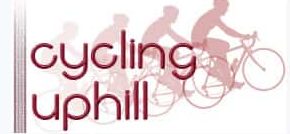There was quite a buzz about Chris Froome’s physiological testing released this week. The general consensus seems to be – well it’s kind of what you would expect, it won’t prove anything either way – the doubters will still doubt, those who believe Froome is clean will certainly have nothing to change their mind.
Perhaps, though I do also remember in the bad old days of Lance Armstrong – people always used to say the same thing. It doesn’t matter what comes out – people have already made up their minds. But, ultimately, people did change their minds.
The final convincing proof that changed a nations mind.
It is quite likely Chris Froome will be challenging to win the Tour de France for the next couple of years, I hope the rather extreme manifestations of suspicion can fade away in future years. Releasing results of testing is perhaps one step.
Limits of physiological testing
As much as I’m aware of the importance of physiology, genetics and ‘natural talent’ the thing that appeals to me about cycling is the potential – perceived or real of seeing how far you can transcend your own personal efforts. Maybe I’ll explore this more in the future.
I’ll probably never get round to physiological testing because:
- A) I’d rather spend the time training.
- B) I don’t want to pay.
- C) I’m not sure what you are supposed to do with the results. It’s a bit like my power meter, all very interesting, but I never really go through files to learn from it.
- D) I don’t even know where you can get tested.
- E) I don’t think it’s that interesting. A VO2 Max figure would be of mild curiosity value, a bit like your resting heart rate. But, ultimately, you race to see how fast you are.
Another article on doping
I wrote another article on doping, it got a bit long and, in parts, a bit philosophical so I put on another blog – Doping and cycling. The Tejvan blog is a collection of personal musings.


We knew Armstrong used drugs, but now rugs too?
A magic carpet for flying up hills
Tejvan, here’s a few thoughts about why testing may be of use…
https://sportstestuk.wordpress.com/2015/07/16/but-im-not-good-enough/
Hopefully they give some balance to your views?
Garry